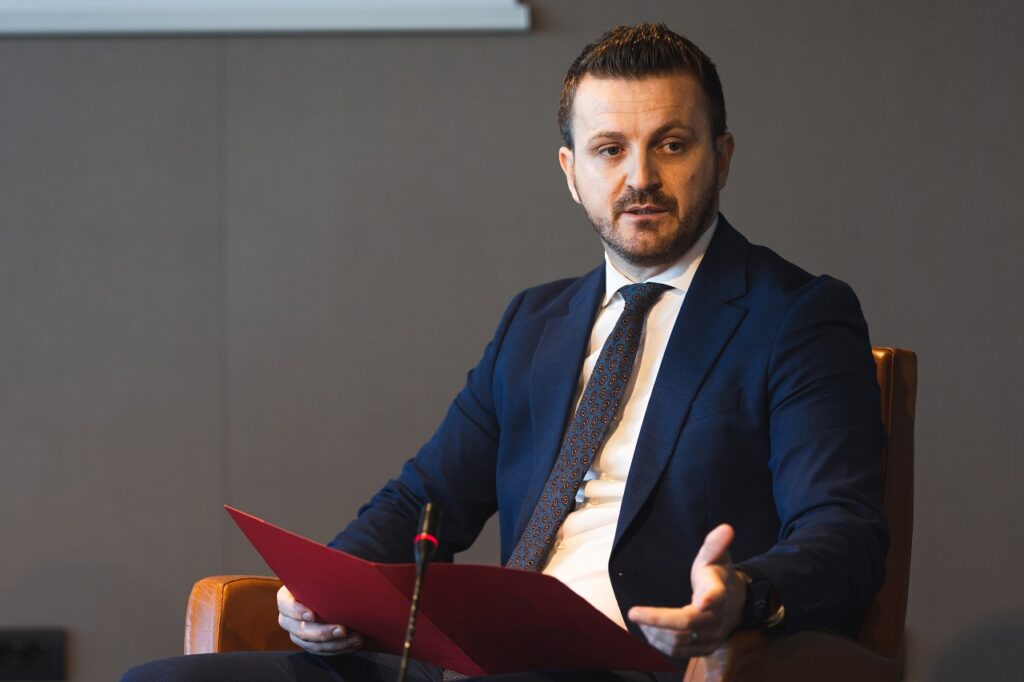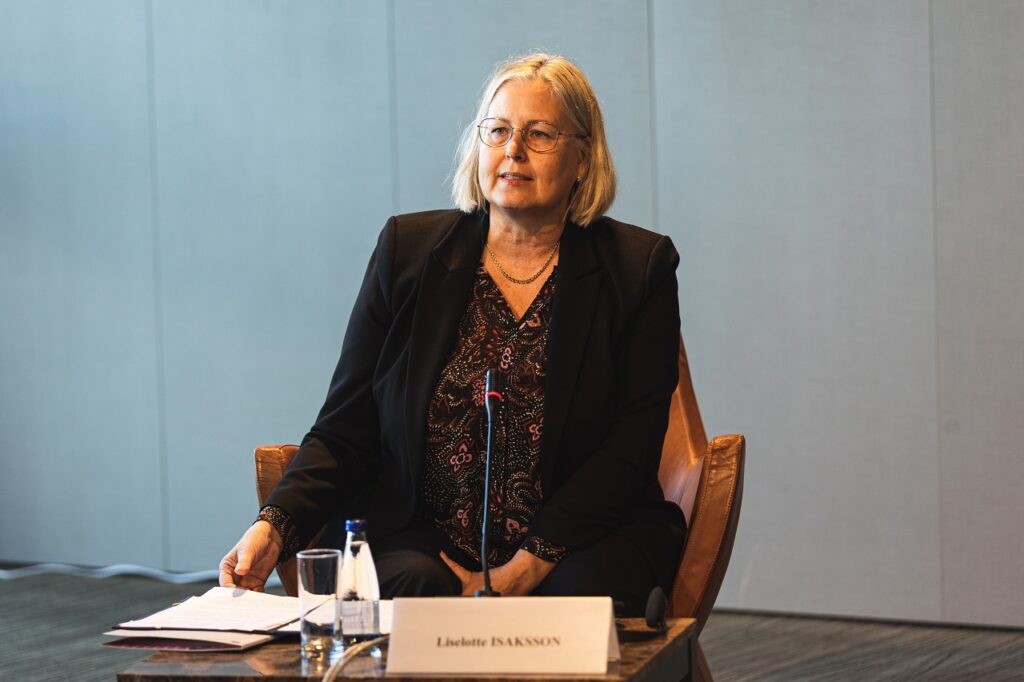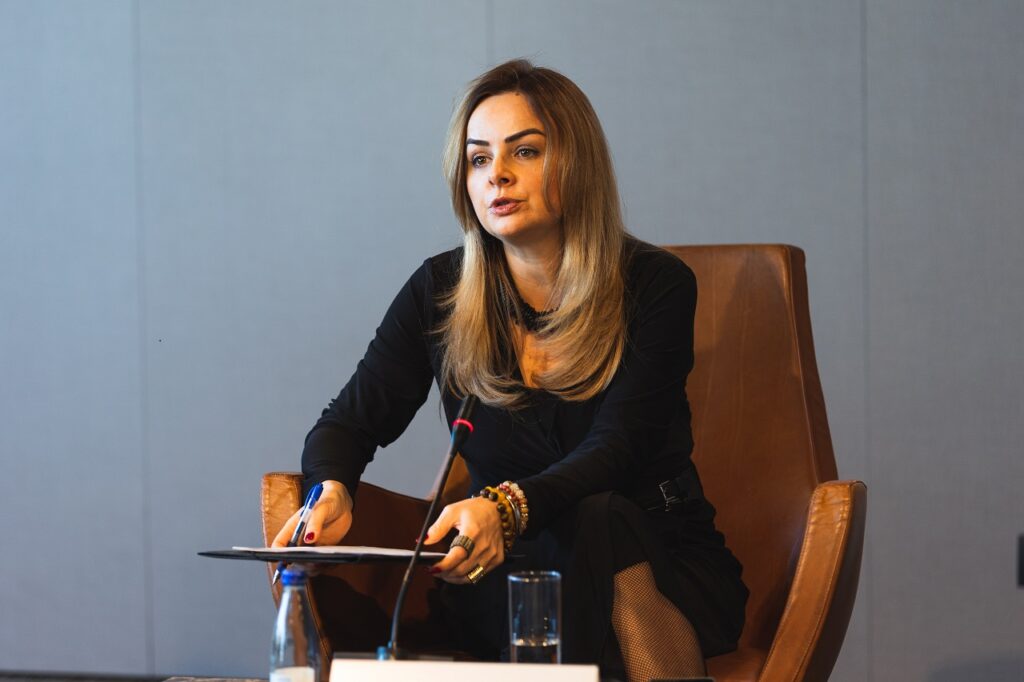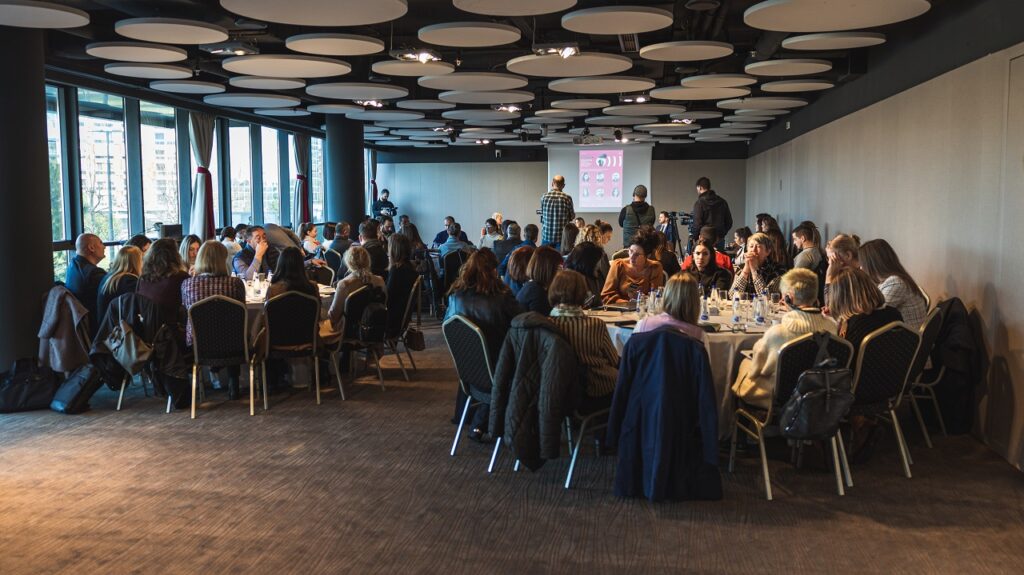„Level of cooperation with NGO sector can be taken as one of the indicators of the degree of democratic achievement of a society, the government should accept that civil society organizations play an important role between the administration and citizens, and NGOs should be part of the constant struggle for a responsible society of all citizens”, it was said at the opening of the discussion forum “Voice of civil society in advocating for change” organised by the Centre for Civic Education (CCE) with partners, with the support of the European Union and co-financing by the Ministry of Public Administration.
Maraš Dukaj, the Minister of Public Administration of the Government of Montenegro, pointed out that “there is not one government, or one ministry, or one party, which can independently lead to the successful integration of society into the European community. It has been shown that the civil sector must be included in that process, as well as all social forces, which positively influence the change in the state of society”. He considers that the degree of cooperation with the NGO sector can be taken as one of the indicators of the degree of democratic achievement of a society, but also that the cooperation between NGOs and their unity around key issues is of exceptional importance. „The Ministry of Public Administration sees non-governmental organizations as strategic partners in reforms, reflection and implementation of public policies. We improve the legislative framework, we co-finance NGO programmes and projects approved by the European Commission, we cooperate in the Council and in working groups, we work together in the Open Government Partnership,” he explained, promising that the Ministry of Public Administration will strive to ensure that cooperation with the NGO sector remains essential and continuous. „We expect from you a critical assessment, but also cooperation in the form of concrete proposals on how to improve our public policies, how to make our public administration even better. I believe that you and the wider social community recognize that we are determined to change the situation for the better, regardless of all the obstacles. I invite you also on this occasion to come up with new solutions for the benefit of our country and citizens. You have taken on a difficult task – to change Montenegrin society. The key task of us, from the state administration, is – to change ourselves. Our goals are very demanding, so let’s reach them more easily with joint efforts“, he concluded.

Liselotte Isaksson, Deputy Head of Cooperation in the EU Delegation to Montenegro, pointed out the importance of thematic discussions within civil society and emphasized that civil society is a link between citizens and institutions. “You are also the ones who help facilitate the process of Montenegro’s accession process, by monitoring and supporting reforms in key areas,” Isaksson told the representatives of the NGO, adding that in the field of strengthening democracy there is already traditional cooperation between civil society and the EU, as well as financial EU support to civil society, including an increasing focus on small organizations throughout the country, with the aim of their capacuty building to have an impact both on the development of local communities and on the national level. “The continuous support we provide for the CSO sector aims at empowering you to be independent, effective and professional actors in Montenegrin society, and in order to best represent the interests of citizens, participate in reforms and accelerate Montenegro’s accession process,” explained Isaksson, reminding that meaningful inclusion of civil society in decision-making processes requires a genuine effort by civil society and the government. “The government should accept that civil society organizations play an important role between the administration and citizens. At the same time, NGOs should be responsible and proactive, as well as strive for a constructive dialogue with the Government, institutions and other actors, such as the private sector”, she concluded. Isaksson stated that in this spirit the EU supports the efforts of the Ministry of Public Administration to improve the legislative framework for work with civil society.

Daliborka Uljarević, Executive director of the CCE, assessed that the NGO sector is an actor that can significantly contribute to the Europeanization of society, both through advocacy in certain areas, especially when that advocacy is systematic, organised and in solidarity, and as a corrective factor in relation to authorities. “Political changes that have taken place in recent years, unfortunately, have not brought qualitative steps forward in the democratic consolidation of society. On the contrary – it seems that the level of responsibility and dialogue, and consequently tolerance and democratic expressions, is significantly lower. All the promises of the last two governments about improving cooperation with CSOs remained empty rhetorics. The sustainability of CSOs is at the same, if not lower, level than before, and essential inclusion has been absent, or is reserved for the civic sector close to the authorities and the one withouth influence. I will remind you that we also have the problem of non-compliance with clear legal obligations related to the support of CSOs, as well as the acces to information, which has put many NGOs in a challenging situation, especially those that provide valuable services, but also others that work on various issues of importance to the process accession to the EU”, said Uljarević. She also pointed out the need for consistent criticism. “The latent state of dormancy is suitable for the key decision makers in the state, for whom the interests of an individual or a group of individuals are above the common good,” she explained. Uljarević also reminded that civil society has great public trust. “Our role is to speak on behalf of those who cannot, to open space for citizens to actively get involved in the processes and be part of those constant struggles for a responsible society of all citizens,” she said.

The goal of the discussion forum is to contribute to the strengthening of the dialogue between institutions and civil society, the exchange of opinions and the opening of space for constructive cooperation in order to improve the environment for the operation and development of the civic sector.
The discussion forum gathered 65 participants from the non-governmental sector, the Government and international organizations.
The discussion forum is one of the activities of the project “CSOs in Montenegro – from basic services to policy formulation-M’BASE”, implemented by the CCE in partnership with the Friedrich Ebert Stiftung (FES), the Center for the Protection and Study of Birds of Montenegro (CZIP), and the and the Political network, in cooperation with the Ministry of Public Administration and the Ministry of European Affairs. The project is implemented with the financial support of the European Union and co-financing by the Ministry of Public Administration.
Maja Marinović, Programme associate

